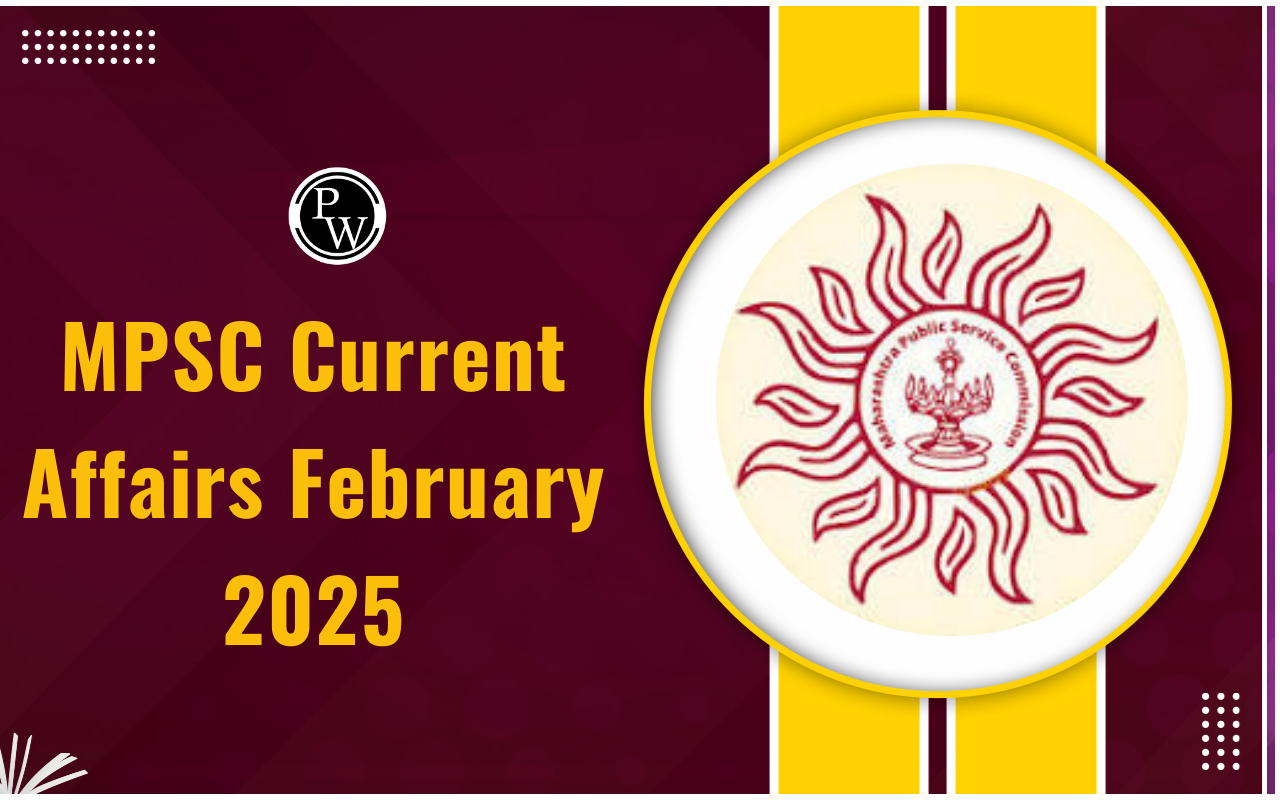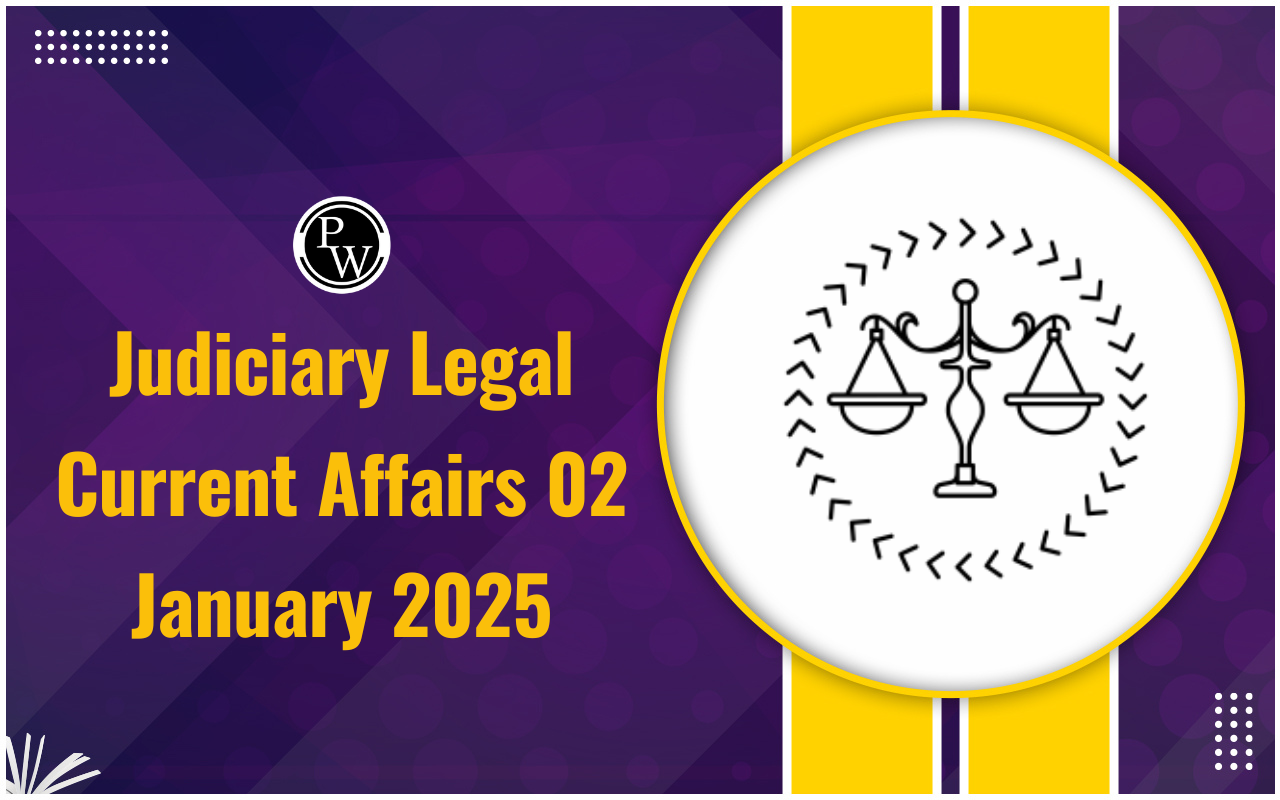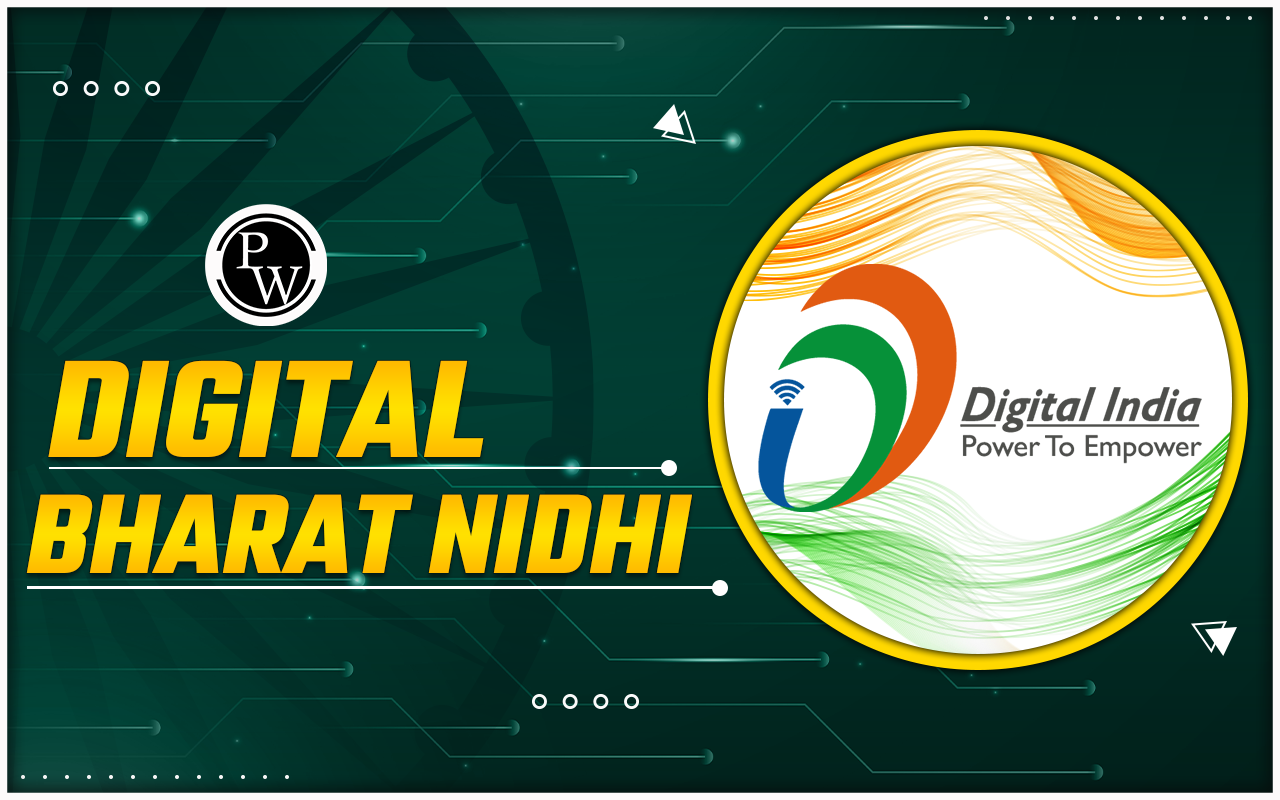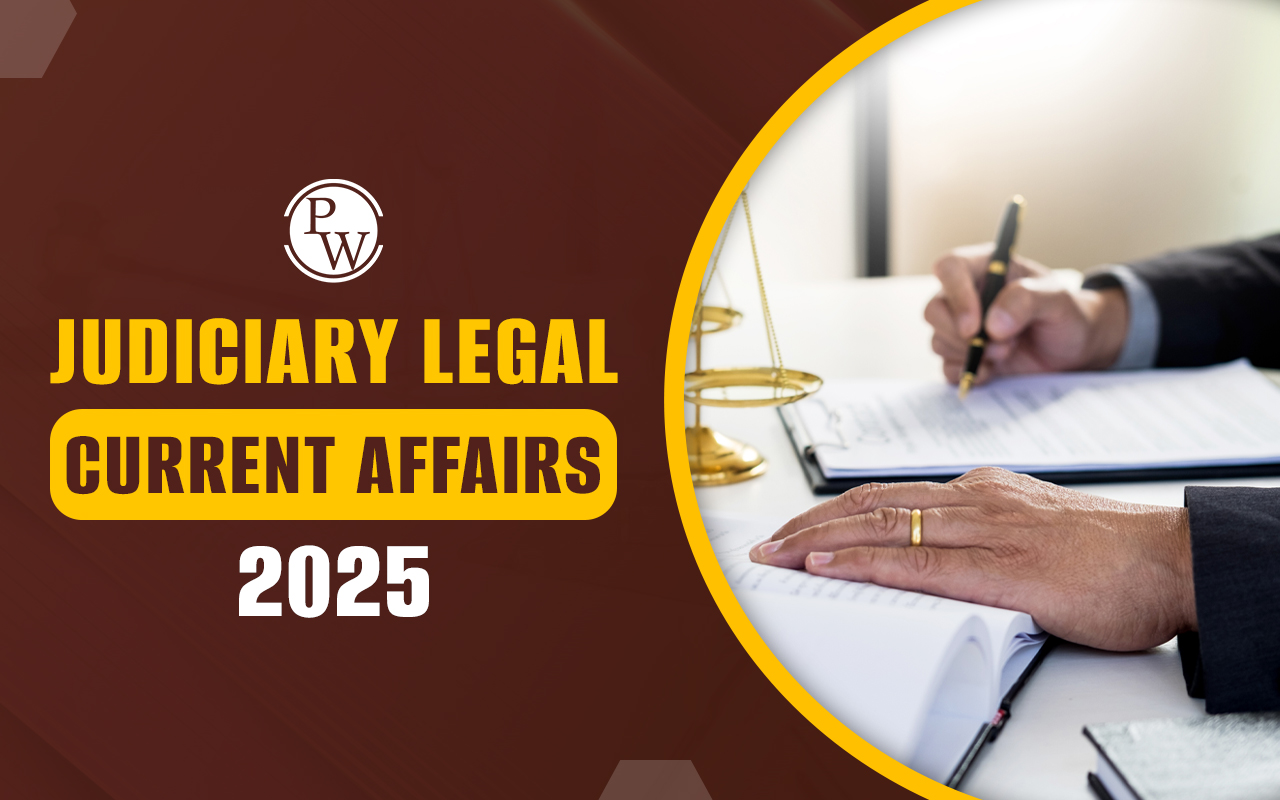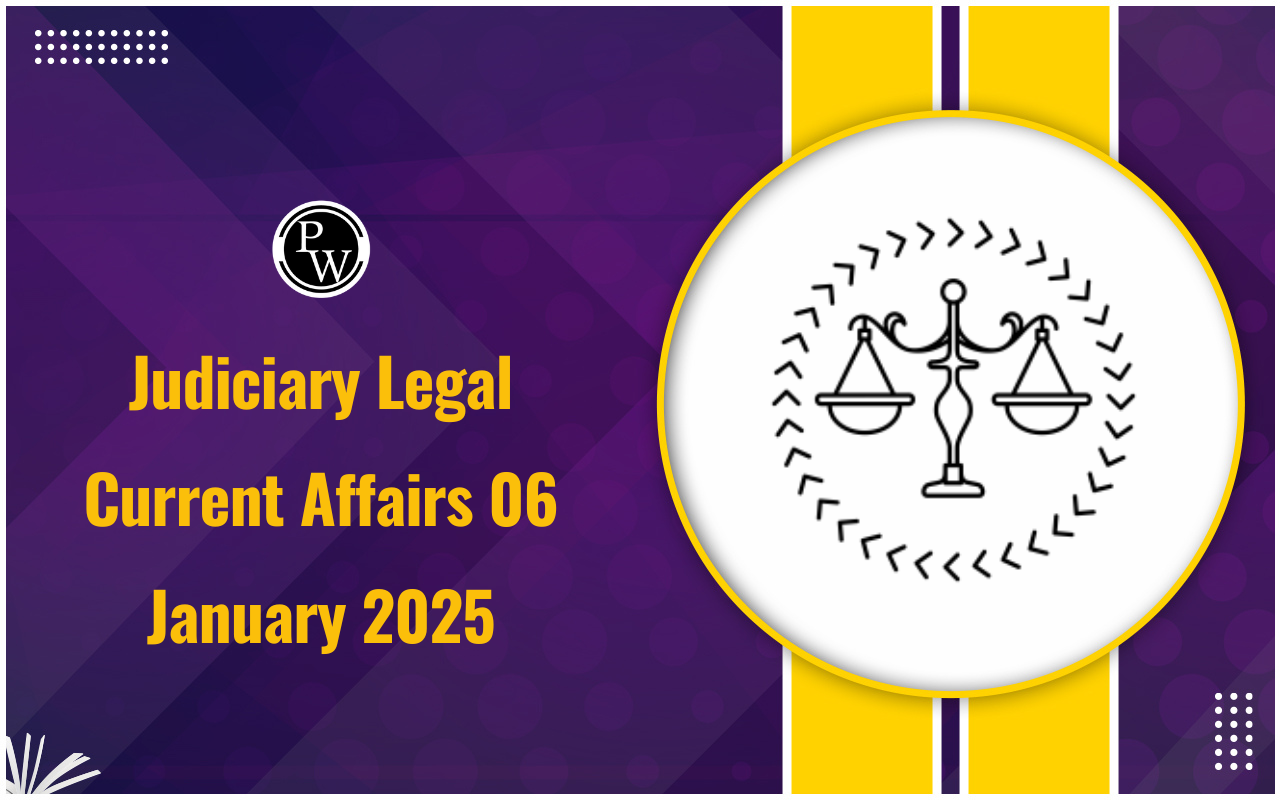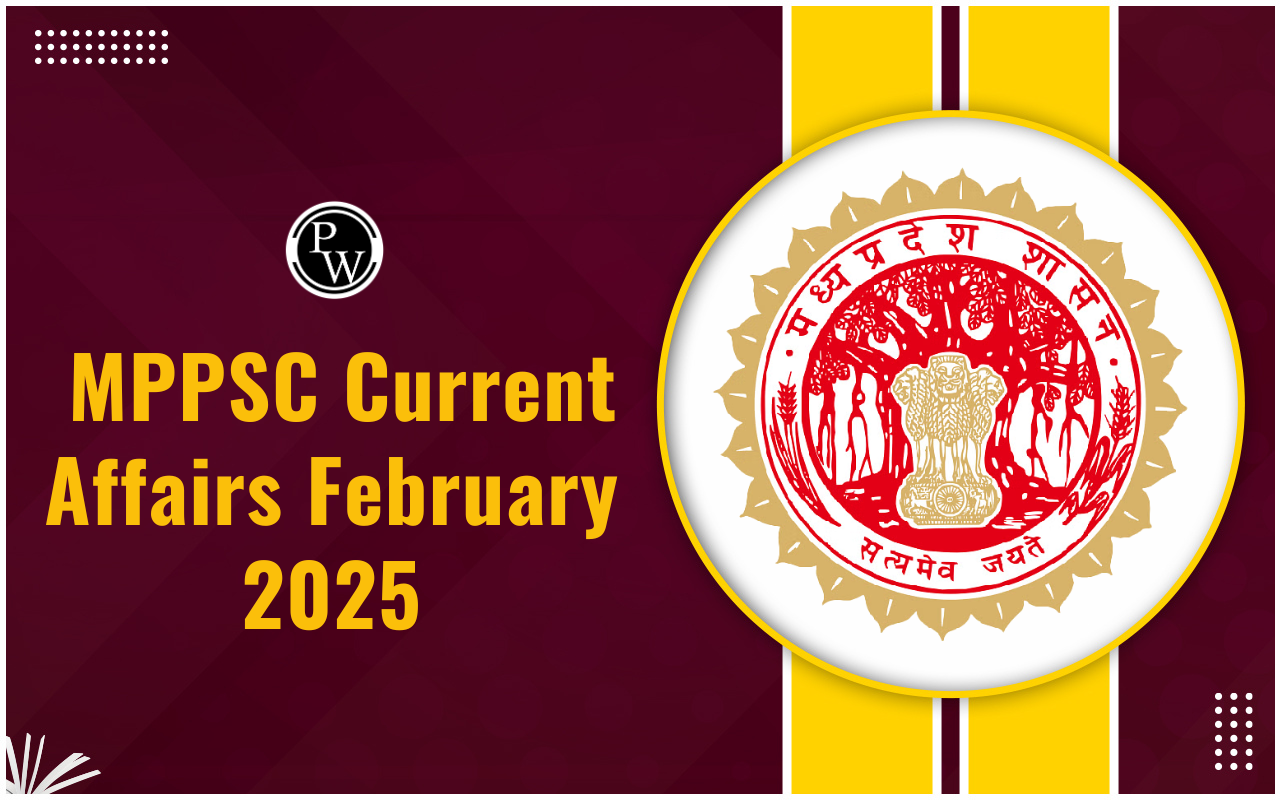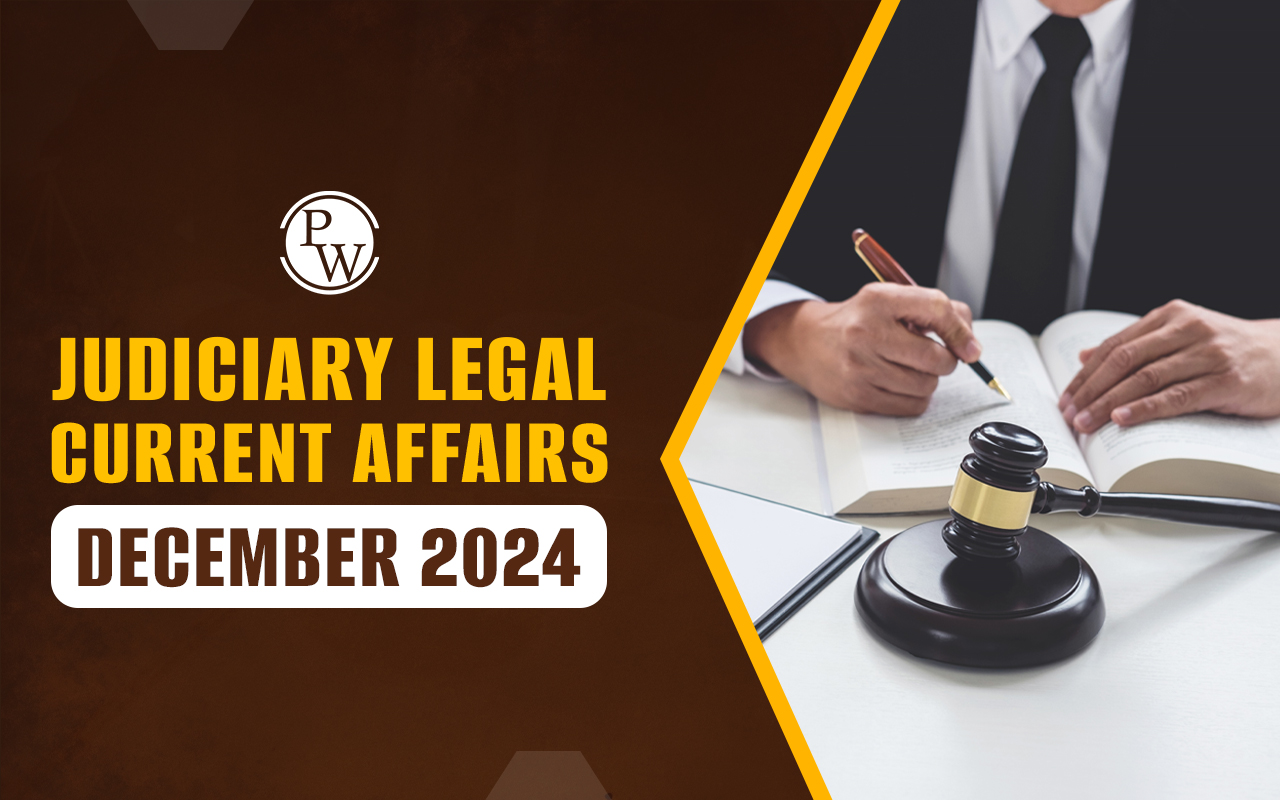
Amit Chavan vs State of Maharashtra
- TOPIC
- : Following A Girl Only once will Not Amount To Stalking
-
- BENCH : Justice Govind Sanap
- FORUM : Bombay High Court
- MAIN ISSUE
-
- Whether merely following a girl or a victim once will be stalking or not.
- OBSERVATIONS
-
- In a significant order, the Nagpur bench of the Bombay High Court recently held that merely following a girl or a victim once, will not amount to stalking as prescribed under the 354-D of the Indian Penal Code (IPC) and the provisions under the Protection Of Children from Sexual Offences (POCSO) Act.
- Single-judge Justice Govind Sanap delivered the ruling on December 5, 2024, while acquitting two boys, convicted for stalking a minor girl by following her.
- The judge said that a single instance of the boys following the victim will not constitute the offence of stalking.
- "It is to be noted that in order to attract the offence of stalking, the prosecution must prove that the accused repeatedly or constantly followed, watched or contacted a child either directly or through electronic, digital media.
- In view of this mandatory requirement of the offence of stalking, a solitary instance of following the victim would not be sufficient to make out this offence," the judge held in the judgment pronounced on December 5. The judge was hearing appeals filed by two boys, both convicted for stalking a minor girl and subsequently sexually assaulting her. The judge noted that the victim in her testimony did not attribute any specific role to the second accused in the case.
- It noted that the second accused only accompanied the first accused boy, while he followed the victim when she went to fetch water from the well.
- Further, the judge noted that the second accused also accompanied the first accused boy, in January 2020, when he visited the house of the girl and forced himself upon her by gagging her mouth and pressing her breast
- During all this, the court noted, the second accused was only standing outside the victim's house and thus, he could not be convicted either for sexual assault or stalking and therefore acquitted him from all the charges.
- As far as the first accused is concerned, the court opined that the offence of stalking is not made out since he followed the girl only once.
- As regards the offence of sexual assault is concerned, the bench noted the evidence of the victim and also her sister, both of whom testified, that the first accused entered her house and gagged the victim's mouth and pressed her breast. The judge found their testimony to be reliable and trustworthy and therefore, upheld the conviction of the first accused on this count.
K Lokesh and the Bangalore district maintenance and welfare of parents and senior citizens appellate tribunal and special deputy commissioner & others
- TOPIC
- Children/Third Parties cannot Appeal Against Maintenance order Passed under Parents & Senior citizens Act
-
- BENCH : Chief Justice N V Anjaria and Justice K V Aravind
- FORUM :Karnataka High Court
- MAIN ISSUE
-
- Regarding the right of appeal against an order passed by the Assistant Commissioner under Maintenance and Welfare of Parents and Senior Citizens Act
- OBSERVATION
-
- The Karnataka High Court has held that the right of appeal against an order passed by the Assistant Commissioner under Maintenance and Welfare of Parents and Senior Citizens Act, is only available to senior citizens and parents and no such right is extended to children or third parties.
- A division bench of Chief Justice N V Anjaria and Justice K V Aravind held thus while partly allowing an appeal filed by K Lokesh.
- The judge said that a single instance of the boys following the victim will not constitute the offence of stalking.
- "It is to be noted that in order to attract the offence of stalking, the prosecution must prove that the accused repeatedly or constantly followed, watched or contacted a child either directly or through electronic, digital media.
- The court said “The only reasonable interpretation of Section 16 of the Act is that the right of appeal is vested exclusively in senior citizens or parents, and not in any other individuals, including children or transferees.”
- Section 16 of the Act states that any senior citizen or a parent, as the case may be, aggrieved by an order of a Tribunal may, within sixty days from the date of the order, prefer an appeal to the Appellate Tribunal.
- Referring to the statement of object and reasons of the Act, the court said “The Act is enacted for the welfare of a class of citizens with an object to provide immediate relief towards their amenities and basic physical needs. The aim was not only to provide amenities and basic physical needs, however with another broader object of speedy and inexpensive remedy.
- It said, “When the text of Section 16 of the Act is read and understood in light of the object and reasons behind the legislation, it becomes abundantly clear that Parliament intended to provide the remedy of appeal under Section 16 solely to senior citizens or parents. Any alternative interpretation would lead to an absurd outcome, which is not permissible.
- In the present case the deceased father of the appellant P. Krishna had executed a Gift Deed dated 27.02.2019 in favour of his son Ayyappa, gifting him a residential property. Thereafter, he filed a petition under Sections 4, 5 and 23 of the Act before Assistant Commissioner, alleging fraudulent gift deed and denial of basic amenities by his son
- The Assistant Commissioner by order dated 27.02.2023 allowed the petition by directing to cancel the Gift Deed and Rectification Deed dated 02.04.2019. 4. P. Krishna thereafter bequeathed the property in favour of the appellant, through a registered Will dated 14.07.2023.
- Ayyappa preferred an appeal before the Deputy Commissioner under Section 16 of the Act. The Deputy Commissioner allowed the appeal by order dated 14.08.2023 by setting aside the order of the Assistant Commissioner.
- During the pendency of the appeal P. Krishna died thus the appellant and his sister were impleaded as legal representatives. Lokesh moved the High Court against the order of the Deputy Commissioner, the single Judge thus passed the impugned order dated February 2, 2024 and permitted the appellant and respondent No.2 to agitate their rights before the competent court of law.
- The appellant mainly contended that appeal filed by respondent No.2 before the Deputy Commissioner under Section 16 of the Act is not maintainable.
- The appeal provision under Section 16 of the Act enables only senior citizens or a parent to prefer an appeal to the Appellate Tribunal. Respondent No.2 is not a senior citizen or a parent in the context of Section 16 of Act.
- The respondent submitted that the Gift Deed dated 27.02.2019 in favour of respondent No.2 is unconditional. There is no condition to provide basic amenities or basic physical needs. As such, there is no failure or refusal to provide such amenities and basic physical needs.
- Moreover, the father has invoked Section 23 of the Act under the misdirection of the siblings aiming at the property in question. The right to senior citizens under Section 23 of the Act is a personal right. The right to protection under the Act would exhaust itself with the death of the senior citizen. Such right cannot be extended/continued by the legal heirs. The proceedings would get abated on the death of the senior citizen.
- The bench noted that the language of Section 16 of the Act is plain, clear, and unambiguous. This provision specifically and unequivocally grants the right of appeal exclusively to senior citizens.
- It said “Extending this right to any other person, including the transferee, is not permissible. Interpreting Section 23 of the Act to provide a right of appeal to the transferee or any other person would amount to rewriting the provision, a function that lies beyond the jurisdiction of the Court
- Granting such a right to the transferee would contradict the legislative intent behind the Act.”
- Emphasising that when a statutory provision is ambiguous, interpretative tools can be used to resolve the ambiguity. If, after such an exercise, the Court finds ambiguity, the interpretation should aim to fulfill the purpose of the provision. It said, “However, Section 16 of the Act is clear and unambiguous, leaving no necessity to resort to interpretation tools.”
- The court also clarified that if the children or transferee is aggrieved by an order under Section 23 of the Act, they are not without a remedy. They can always invoke Article 226 of the Constitution of India. While this may result in two separate proceedings before different forums, such a situation cannot be used as a basis to extend the right of appeal under Section 16 of the Act to a different class of persons, as this right was not provided by Parliament.
- Accordingly it said the appeal under Section 16 of the Act before the Deputy Commissioner by Ayyappa is held to be not maintainable. It held, “The order of learned Single Judge is without any justifiable reasoning. However, in view of the finding herein-above on the maintainability of appeal under Section 16 of the Act, the order of learned Single Judge can be justified to the extent, setting aside the order of the Deputy Commissioner
- However, it is difficult to find any reason or justification in the order of learned Single Judge in setting aside the order of the Assistant Commissioner. To this extent the order of learned Single Judge suffers from excessive, is not sustainable and is to be set aside.”
- The court refused to consider the contention raised by the respondent that Section 23 of the Act is not available to be invoked by late P. Krishna (his father) for noncompliance of its conditions
- Similarly, the court was not called upon to examine the validity of the order passed by the Assistant Commissioner or the registered Will, thus it refrained from making any observations on these issues.
Vijay Katara Versus Principal Secretary And Others
- TOPIC
- Objection By Member of A community Doesn’t Take Away A person’s Right To Pray As per His Religion Under Article 25
-
- BENCH : Justice Subodh Abhyankar
- FORUM : Madhya Pradesh High Court
- MAIN ISSUE
-
- Regarding certain objections raised by a member of one community
- OBSERVATION
-
- Allowing a plea for conducting a New Year programme for the Christian Community which was opposed by the Vishva Hindu Parishad, the Indore Bench of Madhya Pradesh High Court observed that merely on the basis of certain objections raised by a member of one community, a person cannot be denied the right to assemble and pray as per his religion guaranteed under Article 25 of the Constitution
- Justice Subodh Abhyankar observed, “…the petitioner has been conducting such programme since last more than couple of years, which is also evident from the documents filed on record, and in such circumstances, merely on the basis of certain objections raised by the member of one community, the right of the petitioner to assemble and pray as per his religion as guaranteed under Art.25 of the Constitution, cannot be taken away
- It is also apparent that the S.D.M. has rejected the permission dated 19.12.2024, only on the asking of member of other community, without even affording any opportunity of hearing to the petitioner. Thus, the petitioner has also been deprived of his valuable right to be heard before passing of an adverse order against him.”
- As per the factual matrix of the case, the petitioner, an individual belonging to the Christian community had applied to the S.D.M., Meghnagar for conducting a New Year programme of Christian community. The application was allowed by the S.D.M. under certain conditions.
- However, the petitioner was later served another order issued by the S.D.M informing him that on account of certain objections raised by Vishva Hindu Parishad, Malwa Region, District Jhabua, it appears that the programme to be conducted by the petitioner, would cause disturbance and communal harmony, hence, the permission earlier granted to the petitioner was rejected.
- The counsel for the petitioner submitted that before passing the aforesaid order, the petitioner was never informed and was not given any opportunity of hearing. It is further submitted that the aforesaid programme is conducted every year and an identical application filed for the last year on December 7, 2023 which was allowed was presented before the court showing that there was no disruption in the communal harmony
- On the contrary, the counsel for the State submitted that no illegality had been committed by the S.D.M. in rejecting the said application, as he was apprehending disruption in the communal harmony.
- After hearing both the sides, the court concluded that the petitioner had been conducting the New Year programme for more than past couple of years without causing any disruption in communal harmony.
- Thus, his right to assemble and pray as per his religion cannot be taken away merely on certain objections raised by member of another community.
- Thereafter, the court quashed the order of rejection of permission passed by the S.D.M. “…it is directed that the petitioner shall be free to hold the function as allowed earlier by the S.D.M. on 19.12.2024. The Collector, Jhabua is also directed to ensure that no disruption takes place, while the aforesaid programme/function is convened.”, the Court said.
- The petition was hence, allowed
Narpat Surela v the State of Rajasthan, and other connected petitions
- TOPIC
- Not issuing Provisional Answer Key or Inviting Objections During Recruitment Process violates Fundamental Rights of Candidates
-
- BENCH : Justice Sameer Jain
- FORUM : : Rajasthan High Court
- MAIN ISSUE
-
- Regarding the procedure like issuance of model answer key, inviting objections, constitution of committee of experts and issuance of final answer key in the recruitment process for government post
- OBSERVATIONS
-
- Rajasthan High Court has ruled that not following the procedure like issuance of model answer key, inviting objections, constitution of committee of experts and issuance of final answer key in the recruitment process for government posts, renders the process nontransparent and violates the fundamental rights of the aspirants under Articles 14, 16 and 21 of the Constitution.
- The bench of Justice Sameer Jain thus directed the State and its authorities including the Rajasthan Public Service Commission and Rajasthan Staff Selection Board to undertake the recruitment process in strict adherence to the law and the Supreme Court's decision in Harkirat Singh Ghuman v. Punjab and Haryana High Court & Ors., and prepare a fresh merit list within 2 months.
- In the case of Harkirat Singh case, the Apex Court had ruled that
- “to keep transparency in the process of holding examination, particularly in such cases where there is a multiple-choice question paper, it is always advisable that for such question papers, there shall always be an OMR sheet which may be provided to the candidates so that the question paper can be retained by each of the participants and after the examination is held,
- A provisional answer key is to be uploaded inviting objections from the candidates who had participated in the selection process, to be furnished within a reasonable time and after collating such objections, the same be placed before a subject expert committee to be constituted by the recruiting/competent authority and after the report is submitted by the subject expert committee, the same be examined by the recruiting authority and thereafter the final answer key is to be uploaded.”
- The Court was hearing a bunch of petitions filed by the candidates who participated in the recruitment process for the posts of Junior Scientific Officer (JSO), Junior Environment Engineer (JEE) and Legal Officer-II, but their names did not appear in the provisional list of shortlisted candidates.
- The primary contention put forth by the petitioners was that the recruitment was conducted in a biased, unfair and non-transparent manner
- It was argued that to maintain transparency in public objective type examinations, a copy of OMR along with the question booklet should be provided to the candidate. Thereafter, a model answer key should be published on which objections should be invited followed by responses to those objections and finally publishing of final answer key. However, no such procedure was adopted since the examination was conducted in an online format
- Furthermore, it was argued that instead of engaging an exam conducting authority like RPSCB, the recruitment process was culminated in great haste with the aid of Institute of Personnel Banking (IBPS).
- After hearing the contention, the Court firstly held that as per the provisions of Rajasthan State Control Board Employees Service Rules and Regulations, 1993 (“1993 Regulations”),
- RPSCB had the right to delegate its powers and conduct the recruitment as per direct recruitment once it had invited applications on the posts through published notification.
- Furthermore, the Court opined that it was a settled law that the right to fair and impartial process of selection was fundamental irrespective of the score of an individual since such it safeguarded an individual's interest and also increased public confidence.
- Hence, it was held that the respondents had bypassed the settled position of law as laid down in the Harkirat Singh Case and observed that,
- “it can be deduced that at the drop of the hat, the respondents have rushed to conclude the said selection process and the same reflects the malice in law and violation of provisions of RTPP Act
- No objections were called by the respondents subsequent to the release of provisional answer key, no proper rationale and explanations are tendered by the expert committee, if so formulated…From the aforerelied upon ratios it can be deduced that to maintain transparency in the public employment especially where multiple choice question-answer pattern is followed
- The question papers should be provided to the candidates after the conclusion of the said examination; provisional/model answer key should be released; objections should be called; expert committee should be constituted and reasonable explanation and justification should be tendered to the dubious questions; and only after following the said procedure the final answer key should be released. Nonetheless, it is noteworthy that under the garb of technicalities, the said procedure is not followed in the impugned recruitment process.”
- Thus, the Court highlighted that even though the mechanism of direct recruitment by engaging IBPS as exam conducting authority was valid, the Respondents had erred by not following the advisory guidelines issued in the precedents and conducted the examination in a non-transparent and unfair manner.
- Accordingly, the Court passed the afore-mentioned directions while allowing the batch of petitions
Bocha Srinu Babu vs. B. Mohan and 3 others
- TOPIC
- Date of Acquisition of Qualification is date of Declaration of Results, Not Date of Issuance of Provisional certificate
-
- BENCH : Justice Ravi Nath Tilhari and Justice V Srinivas
- FORUM : : Andhra Pradesh High Court
- MAIN ISSUE
-
- Regarding date of acquiring requisite qualification would be from the date of declaration of results
- OBSERVATION
-
- The Andhra Pradesh High Court has reiterated that the date of acquiring requisite qualification would be from the date of declaration of results and not the date on which the provisional certificate was issued.
- A Division Bench of Justice Ravi Nath Tilhari and Justice V Srinivas further held that though a provisional certificate is proof of qualification, its date of issuance cannot be taken as the date of acquisition of the qualification in question.
- The court pointed out that Regulation – 33 of Andhra Pradesh State Electricity Board (A.P.S.E.B.)Service Regulations, 1968 stipulates a 'last day of examination' rule that was not followed by the GO being relied on by the respondent/Corporation.
- “The material aspect; as to whether this memo dated 05.02.1992 clarifies 'last date of examination' as under Regulation-33 or the date of issuance of the provisional certificate is deemed to be the date of obtaining the degree, escaped consideration
- This aspect is material for the reason that the degree is issued after some time, and in the absence of degree, to entitle the candidate/employee to show the proof of having acquired the qualification, where the provisional certificate has been obtained, the date of the provisional certificate is deemed to be the date of obtaining the degree. Whether such date of obtaining the provisional certificate has been clarified by memo, to be the 'last date of examination under the Regulation-33', prima facie, we are of the view that it is not so
- Relying on Rakesh Kumar Sharma Vs. State (NCT of Delhi) and Others and Medi Apanna v. The Tahsildar, Burji Mandal & ors, the bench held:
- “The date of acquisition of qualification, it is settled in law that, in the absence of any rule/regulation to the contrary, would be the date of declaration of result. The issuance of the provisional certificate, degree or diploma, is only the proof of acquisition of such qualification, but the date of issuance is not the date of acquisition of the qualification.
- The review was filed challenging the order passed in an Appeal, that confirmed the order passed by the single judge.
- The petitioner was initially appointed as Additional Assistant Engineer (AAE) in 2009 with a diploma qualification. During his service, he completed his B.Tech (EEE) examination, with the last examination date being August 16, 2010. He obtained his provisional certificate on July 12, 2012.
- Subsequently, he requested conversion from AAE to Assistant Engineer (AE) based on his newly acquired qualification under the A.P. State Electricity Board Regulations. The authorities issued a memo dated March 23, 2012, converting his post from AAE to AE effective from March 22, 2012 - the date of the provisional certificate issuance.
- Challenging the same, the petitioner filed a writ petition in the year 2022 praying that either his date of qualification be considered as the last day of examination for the conversion of his post of Additional Assistant Engineer (AAE) to the post of Assistant Engineer (AE) or cancel the conversion and permit him to continue in the post of AE and be entitled to the benefits thereof.
- The respondents relied on a GO dated 05.02.1991 that explicitly indicated that the date of qualification would be from the date of issuance of provisional certificate.
- The single judge bench dismissed the petition, owing to the GO, and with an observation that the petitioner himself had delayed in acquiring his certificate
- The order was challenged by way of an appeal, which too was dismissed conceding with the view taken by the single judge bench and adding, that the review petitioner had already exercised his option of conversion and now could not approbate and reprobate.
- Challenging the appeal order, the present review petition was filed. Senior counsel appearing on behalf argued that the date of declaration of results should be considered as the date of qualifying
- The respondents on the other hand contended that an altogether new argument could not be raised at the time of review.
- Pointing to the order passed in the appeal, the Bench noted that the bench had considered the aspect of acquiring qualification on the date of declaration of results, but rejected it. Thus, it was not a new plea that needed elaborate evidence and could be considered
- Referring to the Memo dated 05.02.1992, the Bench observed that it had not considered Regulation-33 of the Service Rules.
- “Prima facie, the memo does not clarify nor relate to the 'last date of examination'. It only clarifies that the date on which the provisional certificate is issued shall be deemed to be the date of obtaining the degree. The date on which the provisional certificate was issued shall be the basis for consideration of such cases or promotion to the next higher cadre.”
- The Bench emphasized that the date of issuance of provisional certificate cannot be taken as the date of qualification because it is mostly uncertain; whereas, the last date of examinations is fixed.
- Thus, with that observation, the review petition was allowed, and the order passed in the writ appeal was set aside for fresh consideration
ABC (Minor) Through Natural Guardian XYZ v. State of Chhattisgarh & Ors
- TOPIC
- Victim can’t be compelled to give Birth To Child of her Rapist : Chhattisgarh HC Allows Termination of 24+ Weeks Old Foetus of Minor
-
- BENCH : Justice Bibhu Datta Guru
- FORUM : : Chhattisgarh High Court
- MAIN ISSUE
-
- Regarding a minor rape victim for abortion of her 24 weeks 6 days old foetus
- OBSERVATIONS
-
- The Chhattisgarh High Court on Thursday allowed the prayer of a minor rape victim for abortion of her 24 weeks 6 days old foetus and held that a victim/prosecutrix cannot be compelled to give birth to the child of her rapist.
- While emphasizing the right to bodily autonomy of the victim/petitioner, the Single Bench of Justice Bibhu Datta Guru observed
- “The victim of rape must be given that much of liberty and right to decide whether she should continue with the pregnancy or she should be permitted to terminate the pregnancy.”
- The petitioner, who is a minor girl, was subjected to forcible sexual intercourse by the accused as a result of which she became pregnant. As the petitioner was unwilling to give birth to a child born out of rape, which has caused a great deal of anguish to her, she filed this petition seeking medical termination of the foetus
- By an order dated 31.12.2024, the Court had requisitioned a report from the Chief Medical & Health Officer/Civil Surgeon, Raigarh. In compliance of the said order, the concerned authority medically examined the victim and submitted the report before the Court.
- The Court, at the outset, examined the relevant legal provision i.e. Section 3 of the Medical Termination of Pregnancy Act, 1971, which provides for termination pregnancy by registered Medical Practitioners
- It also referred to the precedents set by the Apex Court in the subject matter, including in Suchita Srivastava and Another v. Chandigarh Administration.
- It also placed reliance on Mrs. A v. Union of India & Ors., wherein the Supreme Court granted permission for termination of pregnancy of a woman, aged 22 years, in her 25th to 26th weeks of pregnancy holding that continuation of pregnancy can pose severe mental injury to her and no additional risk to her life is involved if she is allowed to undergo the termination
- Above all, Justice Guru also relied on the landmark case of X v. Principal Secretary, Health and Family Welfare Department, Government of NCT of Delhi & Anr., wherein the Supreme Court has unequivocally held that the rights of reproductive autonomy, dignity, and privacy under Article 21 give an unmarried woman the right of choice on whether or not to bear a child, on a similar footing of a married woman
- Against such precedential backdrop, the Court analysed the facts of the case in hand. From the medical report, it was revealed that the petitioner was carrying a 24 weeks and 6 days old foetus. Further, it was stated that if she is allowed to continue pregnancy, she may deteriorate her mental health and possibility for developing antenatal/post-partum mental illness cannot be ruled out
- Therefore, in the interest of the victim-petitioner and also having regard for her bodily autonomy guaranteed under Article 21 of the Constitution, as has been bolstered by a catena of judgments, the Court held that she must be given liberty and right to decide whether she ought to continue with the pregnancy or not.
- “In the facts of the case in hand, it is quite vivid that the pregnancy of the petitioner has crossed 24 weeks of gestational age and unless the judicial order directing termination is available,
- it may not be possible for the doctors even to proceed with termination of pregnancy,” it noted.
- Accordingly, after taking into consideration the facts including the circumstances stated by the victim, her gestational age and judicial precedents, the Court ordered that she shall be admitted to the Kirodimal Government District Hospital, Raigarh/Medical College Hospital (with ICU facilities) and authority concerned was directed to depute expert registered medical practitioners to cause termination of petitioner's pregnancy.
NARESH ANEJA @ NARESH KUMAR ANEJA v. STATE OF UTTAR PRADESH & ANR
- TOPIC
- S.354 IPC | To Establish Mens Rea, Something More than Vague Statements Must Be Produced : SC Quashes Chargesheet
-
- BENCH : Justices Sanjay Karol and C.T. Ravikumar
- FORUM : Supreme Court
- MAIN ISSUE
-
- Regarding Section 354 IPC (Assault or criminal force to woman with intent to outrage her modesty)
- OBSERVATIONS
-
- The Supreme Court, recently (on January 02), observed that for Section 354 IPC (Assault or criminal force to woman with intent to outrage her modesty) to apply, criminal force must be used. Further, such application of force must be coupled with intention to outrage a woman's modesty.
- The Bench of Justices Sanjay Karol and C.T. Ravikumar added that in order to establish mens rea something better than vague statements must be produced before the court. Mere bald assertions of mental and physical discomfort would not suffice.
- The brief facts of the case are such that the appellant and respondent no. 2 were directors in a joint concern namely M/s LAJ-IDS Exports Pvt. Ltd. Respondent no.2 filed a complaint against the appellant of inappropriate behaviour in the workplace\
- Subsequently, a complaint was registered under Section 354 and Section 506 (Punishment for Criminal Intimidation) under IPC. Aggrieved by this, the appellant approached the High Court for quashing of the complaint. However, the High Court refused to grant any such relief observing that it could not undertake a “microscopic examination of facts and evidence to thwart the prosecution case”. Thus, the present case
- At the outset, the Apex Court observed that while Court cannot conduct a mini-trial, it must consider whether the alleged offences are prima facie made out. “To put it differently, it is to be seen, without undertaking a minute examination of the record, that there is some substance in the allegations made which could meet the threshold of statutory language.,” it added.
- It went on to observe that while criminal force is defined under IPC, there is no such definition of modesty. However, the Court relied on several cases including the recent one Attorney General v. Satish for the meaning of modesty. After perusing the FIR and respondent's statement, the Court concluded that no offence under Section 354 was made out. It reasoned that even prima facie the ingredients were not met. Further, no evidence established the appellant's intent.
- “It is well settled that for mens rea to be established, something better than vague statements must be produced before the court. As evidenced by the annexures referred to above, i.e. the FIR, the preliminary investigation report as also the concluding portion of the chargesheet, no direct allegation nor any evidence in support thereof can be found attributing intent to the appellant. It cannot be said, then, that a case u/s 354 IPC is made out against the appellant
- Coming to the offence of criminal intimidation, the Court said that a mere statement without intention would not attract the offence. It referred to the recent case of Sharif Ahmed v. State of U.P., wherein it held:
- “An offence of criminal intimidation arises when the accused intendeds to cause alarm to the victim, though it does not matter whether the victim is alarmed or not. The intention of the accused to cause alarm must be established by bringing evidence on record.
- The word 'intimidate' means to make timid or fearful, especially : to compel or deter by or as if by threats.”
- Having this background in place, the Court said that the examination of FIR, interim investigation report and the chargesheet, did not disclose any offence. Before allowing the appeal, the Court also discussed the High Court's power to quash criminal proceedings
- It cited a thread of precedents including State of Haryana v. Bhajan Lal, Indian Oil Corporation v. NEPC India Ltd and State of Karnataka v. L. Muniswamy wherein it was held that a complaint can be quashed where there is a clear abuse of the process of the Court.
- Taking the above observations into record, the Court set aside the impugned judgment of the High Court and quashed the criminal proceedings against the appellant
Legal Current Affairs MCQ for Judiciary Exam 2025
Q1. Assault or use of criminal force to woman with intent to outrage her modesty which was provided under Section 354 of the Indian Penal COde is now dealt under which section of Bharatiya Nyaya Sanhita, 2023.- Section 73
- Section 74
- Section 75
- Section 76
- Article 21 includes _______________.
- Right against Exploration
- Right to speech
- Right to life and liberty
- Right to worship
- Equality before the Law is a __________
- Positive Concept
- Negative Concept
- Sometimes Positive and sometimes Negative
- Neutral Concept
- Article 25 of Constitution of India mentions freedom of conscience and free ___________ of religion.
- Profession only
- Practice only
- Propagation only
- All of the above
- Section 16 of Senior Citizens Act deal with ________-
- Appeals
- Alteration in allowance
- Award of interest where any claim is allowed
- Jurisdiction and procedure
Judiciary Legal Current Affairs FAQs
How many months of current affairs is required for a Judiciary Exam?
The candidates are recommended to prepare for at least a year before appearing in the Judiciary examination.
Where can I study current affairs for the Judiciary?
The candidates can study and get the daily current affairs for Judiciary from the official page of Physics Wallah.
How can I prepare for Judiciary current affairs?
The candidates can prepare for the Judiciary current affairs by reading newspapers daily and exploring the online material available.
🔥 Trending Blogs
Talk to a counsellorHave doubts? Our support team will be happy to assist you!

Free Learning Resources
PW Books
Notes (Class 10-12)
PW Study Materials
Notes (Class 6-9)
Ncert Solutions
Govt Exams
Class 6th to 12th Online Courses
Govt Job Exams Courses
UPSC Coaching
Defence Exam Coaching
Gate Exam Coaching
Other Exams
Know about Physics Wallah
Physics Wallah is an Indian edtech platform that provides accessible & comprehensive learning experiences to students from Class 6th to postgraduate level. We also provide extensive NCERT solutions, sample paper, NEET, JEE Mains, BITSAT previous year papers & more such resources to students. Physics Wallah also caters to over 3.5 million registered students and over 78 lakh+ Youtube subscribers with 4.8 rating on its app.
We Stand Out because
We provide students with intensive courses with India’s qualified & experienced faculties & mentors. PW strives to make the learning experience comprehensive and accessible for students of all sections of society. We believe in empowering every single student who couldn't dream of a good career in engineering and medical field earlier.
Our Key Focus Areas
Physics Wallah's main focus is to make the learning experience as economical as possible for all students. With our affordable courses like Lakshya, Udaan and Arjuna and many others, we have been able to provide a platform for lakhs of aspirants. From providing Chemistry, Maths, Physics formula to giving e-books of eminent authors like RD Sharma, RS Aggarwal and Lakhmir Singh, PW focuses on every single student's need for preparation.
What Makes Us Different
Physics Wallah strives to develop a comprehensive pedagogical structure for students, where they get a state-of-the-art learning experience with study material and resources. Apart from catering students preparing for JEE Mains and NEET, PW also provides study material for each state board like Uttar Pradesh, Bihar, and others
Copyright © 2026 Physicswallah Limited All rights reserved.

